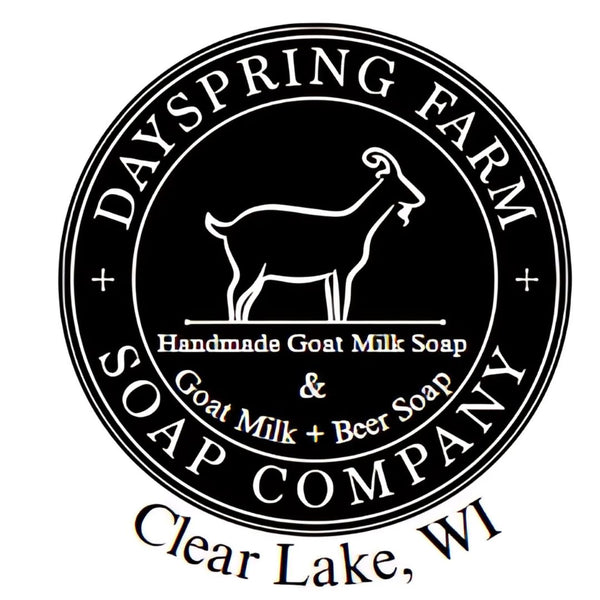I have to admit that when we took the plunge and moved from suburbia to the farm, I didn't envision goats. In fact, one of the last things a Portland-area friend said to us was, "you will think goats are a great idea. Defeat the temptation." Another friend who owned a small organic farm producing grass-fed dairy and free-range eggs, and who was, in fact, our inspiration to choose this lifestyle, kept A2 Jersey cows. That's what I envisioned. Or maybe a nice milking Devon. Or one of those sweet, shaggy Highland cows. I had this all worked out in my mind and it was definitely a cow. A nice, placid dairy cow.
Then we moved to Dayspring Farm. We don't have pasture, like cows want. We have leafy brush and wooded land. As it turns out, that's precisely what goats are looking for. Our goats make the coveted A2 dairy which is so easy for humans to digest (even humans who struggle to tolerate milk). Soap Guy and I looked at each other and realized what made the most sense was not our prized vision, the cow, but goats. The wily menace we were warned of. An animal that had a reputation (earned, as it turns out) of being half monkey and half dairy animal. "If your fence will hold water, it'll hold a goat." The ones cartoons showed munching on tin cans (ours have never done this but they did, at one point, threaten the siding on our house).
We were determined, however, to press on, even if it meant homesteading with goats. We wanted our kids to grow up drinking healthy, raw dairy from our own animals. Even if those animals were not cows. Our fourth and fifth babies were weaned right onto goat milk and were the picture of health. We couldn't argue with results.
As it turns out, the wiliness is kind of endearing. What goats lack in placidity they make up for in hardiness. Where cows sometimes need a magnetic bolus to save them from their indiscriminate eating habits (the large magnet placed in their stomachs saves them from serious harm when they accidentally swallow nails or other sharp metal objects), goats (despite their reputation) are pretty picky eaters. That often saves them from eating lethal items, a worry no livestock owner is a stranger to. When our goats happen on a less-than-perfect bale of hay (we discovered a few moldy ones last year) they turn up their noses.
We rarely need to medicate our goats for anything, and we try to solve most problems by maintaining stellar husbandry. One of the reasons for our somewhat brutal habit of wintertime kidding (we usually kid in February when the weather is in the teens) is to head off parasites, which postpartum does and new kids are vulnerable to. Our teeth are chattering and we're in a hurry to get those newborns warm, dry, and nursing, but there are no parasites threatening when there's snow on the ground, which means we can usually skip dewormers altogether. No medications in our goats means no medications in their milk, and we prefer our milk pharmaceutical-free.
What do you think? Are goats for you? Let us know if you have questions - they've certainly won us over (don't tell Kate - we think they're pretty sweet).

